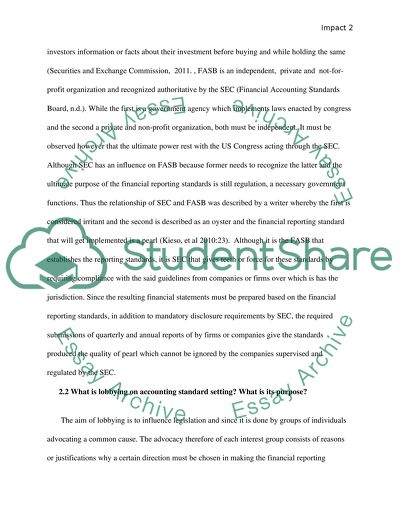Cite this document
(“The Impact of Lobbying on Standard Setting in Accounting Essay - 1”, n.d.)
Retrieved from https://studentshare.org/finance-accounting/1577915-the-impact-of-lobbying-on-standard-setting-in-accounting
Retrieved from https://studentshare.org/finance-accounting/1577915-the-impact-of-lobbying-on-standard-setting-in-accounting
(The Impact of Lobbying on Standard Setting in Accounting Essay - 1)
https://studentshare.org/finance-accounting/1577915-the-impact-of-lobbying-on-standard-setting-in-accounting.
https://studentshare.org/finance-accounting/1577915-the-impact-of-lobbying-on-standard-setting-in-accounting.
“The Impact of Lobbying on Standard Setting in Accounting Essay - 1”, n.d. https://studentshare.org/finance-accounting/1577915-the-impact-of-lobbying-on-standard-setting-in-accounting.


